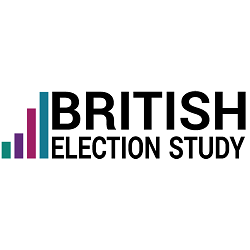This note accompanies the release of the 2017 British Election Study face to face survey (version 1.0).
Dataset and documentation
The dataset and additional documentation are available to download here.
Citation
Fieldhouse, E., J. Green., G. Evans., H. Schmitt, C. van der Eijk, J. Mellon and C. Prosser (2018) British Election Study, 2017: Face-to-Face Survey [computer file], January 2018.
The face-to-face survey
The face-to-face survey is an address-based random probability sample of eligible voters living in 468 wards in 234 Parliamentary Constituencies in England, Scotland, and Wales. 2,194 people completed the face-to-face survey. The fieldwork for the survey was conducted by GfK between June 26th 2017 and October 1st 2017 and achieved an overall response rate of 46.2%. The face-to-face dataset also includes a self-completion Comparative Study of Electoral Systems (CSES) module that was answered by 984 respondents. Full details of the methodology and fieldwork are available in the technical report that accompanies the data release. Full details of the questionnaire can be found in the codebook which also accompanies the data release.
Weights
To ensure that the BES face-to-face survey is representative of the population (18+ adults in Great Britain who are eligible to vote) the data were weighted. Three weights were applied: design weights to correct for unequal selection probabilities, demographic weights which account for differing levels of response from various groups in the population, and result weights which account for differing levels of response from voters and non-voters. We recommend using the results weights (wt_vote and wt_vote_valid).
The data file contains 4 weight variables, as follows:
- wt_sel_wt – selection weights (including capping)
- wt_demog –demographic weight (capped selection plus uncapped demographic weights targeted to the voting eligible population)
- wt_vote –demographic and result weight (capped selection plus capped demographic weights targeted to the voting eligible population and weighting to GB turnout and vote results)
- wt_vote_valid – demographic and result weight validated (capped selection plus capped demographic weights targeted to the voting eligible population and weighting to GB turnout and vote results for cases with vote validation)
- wt_demog_cses – combined CSES weight (capped selection weight plus demographic weighting targeted to the voting eligible population for CSES cases)
For comparability, we have also calculated these weights for the 2015 British Election Study face-to-face. These are available in version 4.0 of the 2015 face-to-face, available here.
Vote Validation
The name and address information of face-to-face respondents who had given their permission for their information to be linked with the electoral registers was matched against the marked electoral registers by our team of BES Research Assistants (Jessica Smith, Charlotte Hargrave, and Laura Sanchez Carboneras). The results of the validation process are found in the turnoutValidationReg and validatedTurnoutBinary variables. In order to assess the reliability of the validation process a subset of respondents was coded by a second research assistant. This process suggests the reliability is very high. In the double coded cases, the two coders report the same outcome 97.5% of the time.
Future releases
At the time of the release of version 1.0 of the data two tasks are still ongoing which will affect future releases of the data and some analysis of the current data:
- We will be adding manually coded most important issue responses
- We will be adding occupational class measurements
The British Election Study
The British Election Study 2017 is managed via a consortium of the University of Manchester, the University of Oxford, and the University of Nottingham. The British Election Study Team is comprised of Ed Fieldhouse, Jane Green, Geoff Evans, Hermann Schmitt, Cees van der Eijk, Jon Mellon and Chris Prosser. The BES 2017 is working in close collaboration with colleagues within the Universities of Manchester, Oxford and Nottingham, and is partnering with a wide variety of affiliated datasets and projects (and proposed projects) to link BES voter data to other data on election candidates and campaigns.

